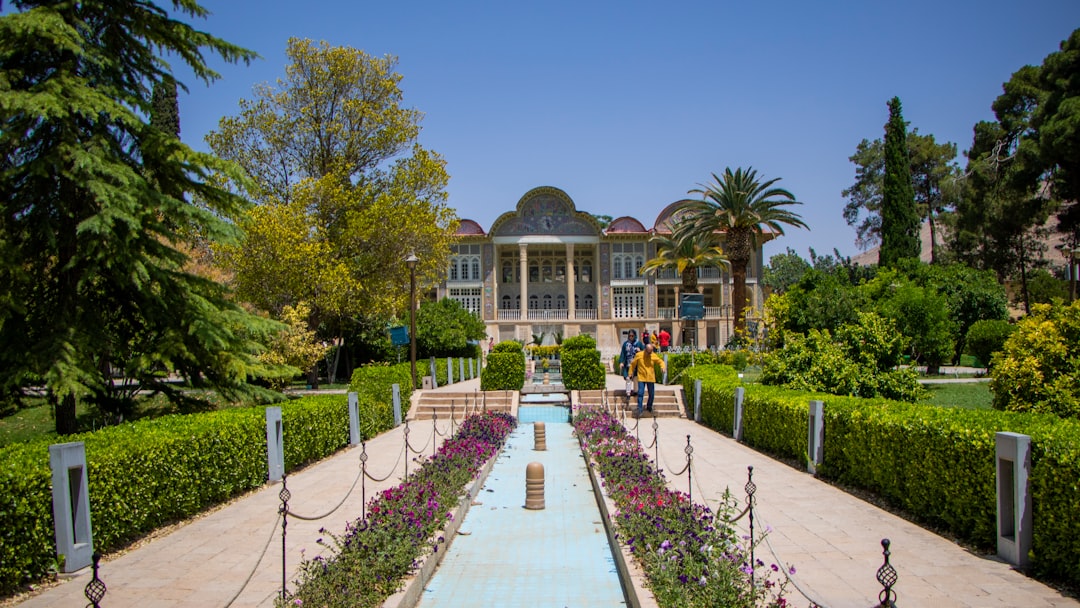A Mystical Reflection Inspired by a Ghazal of Attar of Nishapur
There are loves that live within the world
and there is Love that births worlds.
Attar begins his ghazal with a declaration that strikes at the root of all human understanding:
“The nature of your love lies beyond both worlds
for whatever they name, it is not that.”
Love, as Attar speaks of it, is not a feeling, not an emotion that stirs the heart for a moment and then fades into memory.
It is the fire beneath creation, a force that precedes heaven and earth, a light that cannot be contained by name, creed, or idea.
Every time the mind says “This is love,” Attar replies: “No, it is not that.”
Because love cannot be described by the language of opposites.
It is not joy or pain, not union or separation.
It is what remains when both have dissolved.
Beyond Mind and Measure
“It is higher than the qualities of mind, knowledge, and reason
beyond the secret chambers of the heart and the thoughts of the soul.”
Here, Attar reminds us that reason is a mirror too small to hold the sun.
The intellect may glimpse the edge of truth, but only the heart that burns can taste its essence.
Knowledge is a boundary; love is the vastness that surrounds it.
In the journey of divine love, the seeker must surrender every map.
Logic becomes useless, memory turns to dust, and even the self, that faithful companion of awareness, becomes a stranger.
For the Beloved is not an object to be understood;
He is the silence that swallows understanding whole.
The Eyes and the Tongue
“The eyes that behold Your light are seared with fire
and the tongues that try to tell Your secrets fall mute.”
To see the radiance of God is to go blind to all else.
To speak His mystery is to lose speech itself.
The saints and lovers, those whom Attar calls “the seared-eyed and the tongueless,” dwell in that impossible space between revelation and silence.
They see, but cannot tell.
They know, but cannot name.
Because what they behold is not an image, but the being of beauty itself.
When love fills the heart completely, language collapses.
It is no longer possible to speak about the Beloved, one can only speak as the Beloved.
Every sigh becomes His name.
The Failure of Description
“Every description they give of You is impossible,
And every profit gained from Your love turns to loss.”
The mind seeks to define; the lover seeks to dissolve.
Where the scholar finds knowledge, the lover finds annihilation.
This is not defeat, it is the victory of vanishing.
Attar is not condemning reason, only showing its limit.
To “lose” in love is to find the truth of being.
Every wisdom that does not end in unknowing is only half born.
Every theology that does not collapse into wonder has missed its mark.
All But Love Is Illusion
“In the veil of imagination, everything is play and dream
all that exists in both worlds is nothing but shadow, except Your love.”
When seen through the lens of separation, the world becomes illusion.
Each thing, wealth, fame, form, pleasure, is a flickering shadow cast by the fire of being.
Only love, which burns both shadow and source, is real.
This is why the mystics wander half-mad through the markets of men, laughing, crying, singing songs that make no sense to the sensible.
They have seen the sun of reality and can no longer bow to candles.
They know that the Beloved is not hidden in the world;
the world itself is hidden within the Beloved.
The Ray and the Sun
“If reason is a sign of Your radiant sun,
then even a single ray makes the heavens rejoice.”
Reason, to Attar, is a reflection, a ray that points back toward its source.
The intellect may point us to God, but it cannot contain Him.
A single spark of divine light animates the stars, the galaxies, the movements of mind and heart, yet that spark is still only a reflection.
“How can reason understand one atom of Your sun,
when even the sky itself is but a sign of it?”
The human mind, vast as it seems, is a grain of sand in the ocean of divine intelligence.
To know this humbly is already a kind of enlightenment.
To mistake the sand for the sea is the first illusion.
Certainty Beyond Knowledge
“Reason knows this much, that love holds the secret of reason.
Whoever knows this knows You, without doubt.”
What a sublime paradox.
Reason itself, when it reaches its highest form, bows before love.
It recognizes that the source of its own light is something higher, something irrational, beyond the frame of logic.
Love is not against reason; it is beyond it.
This is why mystics speak in paradox.
They say “To find, lose.”
“To see, close your eyes.”
“To live, die before death.”
They are not poets of contradiction, they are witnesses to another kind of knowing.
The Pathless Path
“All who walk Your path do so in guess and surmise
but the bow that strikes the mark is not drawn by thought.”
Love is not a path that can be charted.
It is a wind, and we are leaves.
Attar tells us that every seeker begins with imagination, with the dream of finding God, but none reach Him by method or argument.
The arrow of realization is shot not by human hand, but by divine grace.
When self-effort dissolves, and striving itself falls silent,
then, only then, the arrow flies straight into the heart of truth.
The False Simurgh
“What profit if the painter draws the image of the Simurgh,
when his soul still bites its finger in regret?”
Attar, who gave the world The Conference of the Birds, returns here to his great symbol, the Simurgh, the divine bird of truth.
He warns us that painting the image of truth is not the same as becoming truth.
The artist who draws the Simurgh but has not seen its essence remains trapped in imagination, mourning what he cannot reach.
To draw the Beloved is not enough.
To speak of God is not enough.
To become the burning, to dissolve into the fire itself, that is the way.
The Shadow and the Essence
“Though the image of the Simurgh exists,
its essence is not the same as that image.”
Here Attar exposes the great secret of the path:
symbols, rituals, even sacred words, they are veils.
They point, but they are not the thing pointed to.
The name of the Beloved is not the Beloved.
The image of the sun is not the sun.
And so the lover must pass through every form to reach the formless.
The Hidden Origin
“In short, what can I say? I am lost.
For the very source, which is the soul, is hidden even from itself.”
At the end of all seeking, Attar finds himself in bewilderment.
After all the flights of mind, all the revelations of love, he arrives where every true mystic arrives, at silence.
The origin of the soul is concealed even from the soul itself.
To know that is to know the deepest truth.
The seeker disappears; the seeking remains.
And in that disappearance, the Beloved shines.
Attar’s Confession
“Attar, who has walked far in wisdom and vision,
is still in search of what lies beyond manifestation.”
The master of The Seven Valleys and The Conference of the Birds ends his song not with triumph, but humility.
After all his spiritual journeys, through knowledge, faith, devotion, annihilation, he confesses that he still seeks “what lies beyond appearance.”
This is not despair.
It is the endless longing of love, which even in union continues to seek.
For love’s secret is movement, a turning that never ends.
The Fire Beyond the Two Worlds
What makes Attar’s mysticism so luminous is his refusal to stop at any horizon.
He burns through duality, body and soul, heaven and earth, belief and disbelief, until only pure awareness remains.
To love, in Attar’s universe, is to be consumed.
And yet, what burns is illusion.
What remains is truth.
A Meditation on Attar’s Vision
Sit quietly, Attar seems to say.
Let the world’s names and forms dissolve.
The mind will whisper, “You are losing everything.”
But in truth, it is only losing itself.
You will not find the Beloved as a form, or an image, or even a feeling.
You will find Him as the silence behind your next breath
the stillness between thoughts
the infinite absence that glows brighter than presence.
This is why he says:
“The essence that is soul is hidden even from itself.”
We are not searching for something new.
We are remembering what we already are, a spark of that boundless light, lost for a moment in the mirror of creation.
Love as the Unthinkable
Love, for Attar, is not the opposite of reason, it is what makes reason possible.
It is the unthinkable that gives thought its life.
The unsayable that gives speech its meaning.
The unseen that makes vision possible.
To love God, then, is not to add something to oneself, it is to strip away everything that is not Him.
To burn until only awareness remains.
And that awareness is love.
The Final Silence
When Attar’s quill stops moving, one senses not an ending but an opening.
The words have led us to the edge, and there, they dissolve.
The poet is silent.
The reader is silent.
Only love speaks, wordless, measureless, eternal.
Perhaps that is the true khasiyat-e-eshq
the nature of love that lies beyond both worlds.
It cannot be described.
It cannot be lost.
It simply is.





